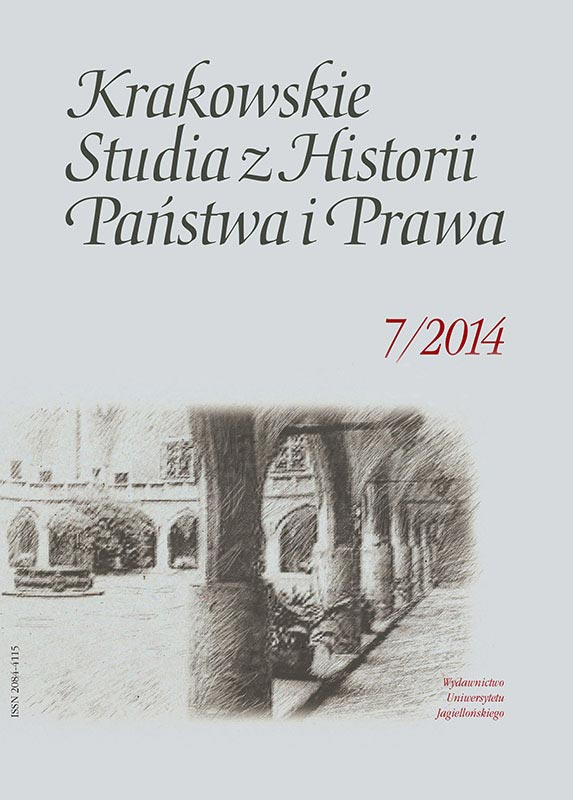Pecunia pecuniam parere non potest? O pieniądzu kredytowym w Rzymie okresu późnej republiki. Zarys problemu
Pecunia Pecuniam Parere Non Potest? On Credit Money in Rome at the Time of the Late Republic. An Outline of the Problem
Author(s): Karolina WyrwińskaSubject(s): Law, Constitution, Jurisprudence, History of Law
Published by: Wydawnictwo Uniwersytetu Jagiellońskiego
Keywords: credit money; credit; purchase and sale of receivables; bankers; non-cash transactions
Summary/Abstract: The deliberations presented in the article have been devoted to the functioning of the institution of “credit money” at the time of the late Roman Republic. In the modern times, the concept of “credit money” refers to receivables which a natural or a legal person is entitled to and which may serve to acquire goods or services. An analysis of the sources from the period of the Late Roman Republic allows one to conclude that the purchase and sale of receivables for the purpose of settling accounts was known to the Romans, and moreover, it allows one to study the phenomenon of the extent of the use of “credit money” during that time. It is particularly Cicero’s “Letters” which indicate that non-cash settlement of transactions was commonly resorted to particularly when using metal coins was difficult or even impossible due to the high value of the negotiated transaction. Taking into consideration the necessity of ensuring security to this type of transactions, it is impossible to ignore the role of bankers as professional intermediaries who were responsible for creating the right conditions enabling one to make payments at a distance.
Journal: Krakowskie Studia z Historii Państwa i Prawa
- Issue Year: 7/2014
- Issue No: 1
- Page Range: 29-38
- Page Count: 10
- Language: Polish

